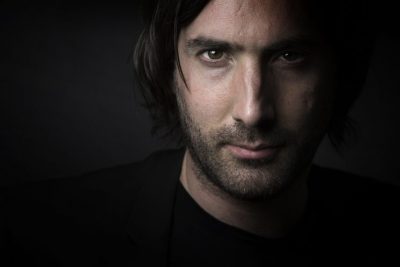Shortlist Spotlight: Paul Lynch
24th May, 2018
Paul Lynch talks to us about his wonderful lyrical novel Grace.
Q: What do you think about being shortlisted for the Walter Scott Prize for Historical Fiction? Do you see yourself as a historical novelist?
It is wonderful to find yourself on a prize shortlist. A lot of great novels pass by each year without attention and a big prize such as the Walter Scott helps put such books on the table before the public. I consider myself very lucky to be on it.
As to my being an “historical novelist”, I would say that all historical novels are deeply contemporary — the novelist and their writing is given shape by the heat and pressure of the times they live in. There is no escaping the present. A novelist can summon what the reader believes to be an authentic past but it is an impossibility to write truthfully of any other time than your own. Historical fiction is contemporary fiction and cannot be anything else. We should do well to remember what Emerson said about history: “time turns to shining ether the solid angularity of facts”.
Q: How did the people and times you write about in this novel first lodge in your imagination?
Unbeknownst to me, two ideas came together very slowly. My debut novel Red Sky in Morning told the story of a young father called Coll Coyle who was hunted out of Donegal to America. He left behind a wife and young family. For a long time, I had no idea that the picaresque novel about a teenage girl I felt brewing in my subconscious was going to be the story of his 14-year-old daughter Grace, told twelve years later, during the Irish famine. I thought it was going to be about somebody else… At the same time, I became deeply interested in a number of books that were being written about Mao’s famine in China. Totalitarian communism missed nothing and recorded everything. Again, my subconscious was going to work, researching the Irish famine by proxy. I suddenly had the makings of Grace, but I did not know it until I began writing it.
Q: What role does research have in your writing? When does the fiction take over from the facts?
The novelist has to know a great deal about their chosen period in order to create for their novel a law of physics that can hold the world together. And then you have to forget everything you know. The historian works by looking backwards, but the novelist must walk forward, moment by moment, inside the life of a character. You must remain true to each moment, as though it were life unfolding in mystery — and not interpreted history, which as a novelist, I remain deeply suspicious of. What we seek in the novel is human truth, and that is a very different thing from the factual.
Q: Do you think that writing about the past is important for society?
What I seek to find in my writing is the universal mind — not what we are now, but who we are always. We are deceived by the present moment and think ourselves unique. But the forces that shape the world are timeless. Read Sophocles and you will see the human condition is a very ancient problem. Life is short and we suffer and seek happiness. Sometimes the fates are kind, sometimes they are not. Everywhere we face malevolence, and too often that malevolence comes from within our own selves. Perhaps this is why historical fiction is so hot right now. The historical allows the author to refract the present into the past so that we can see ourselves from another angle. For me, Gracecaptures something deeply contemporary but ancient — the general powerless that is felt by so many lives on this planet right now.

